2030 TARGET
Reduce CO₂ eq¹ emissions in scopes 1 and 2 by 28%.

**In the 2023/24 season, our results were lower than the previous harvest.
We remain committed to reducing CO₂ equivalent emissions in scopes 1 and 2 (direct and indirect) by 28% compared to the 2019 baseline. In the 2023/2024 harvest, we achieved a 7% reduction. Some of the projects that contributed to this reduction include the electrification of the Ghent terminal in Belgium—the second-largest Citrosuco port terminal in terms of operational volume—which now operates with 100% green, tracked, and certified energy. The Catanduva production unit has also reached 100% renewable energy, and similar investments are being implemented at the Santos terminal and other units.
We use an advanced system that automates and centralizes ESG data collection, enabling strategic and operational decisions based on accurate data, with greater transparency and efficiency in monitoring goals and performance.
Check our 2030 Commitments UpdateThe climate emergency is one of the greatest challenges of our time. Reducing greenhouse gas emissions is the first step in contributing to climate resilience.
Citrosuco operates transparently in this agenda, publishing third-party accredited greenhouse gas (GHG) inventories on platforms such as the GHG Protocol, having achieved the Gold Seal for performance in recent years.
In line with our commitment to reducing emissions by 28% in scopes 1 and 2 by 2030, we have approved our decarbonization pipeline for 2030. We are already increasing our use of renewable energy beyond the current 59% and prioritizing low-carbon inputs in the production process, among other practices.
Through our orange orchards, we contribute directly to carbon removal from the atmosphere.
As a reflection of our climate maturity, we achieved an A- rating in the 2023 Carbon Disclosure Project (CDP). We were the second food and beverage company in Brazil to validate decarbonization targets in the SBTi. As leaders in the value chain, we challenge ourselves to reduce scope 1 and 2 emissions by 28% and scope 3 emissions by 14%.
The 2019, 2022, and 2023 emissions inventories were audited by Bureau Veritas.
.jpg)
2030 TARGET
Structured biodiversity conservation projects for 100% of hectares for environmental protection.


During the 2023/2024 harvest, we reached 100% of Citrosuco farms with the CitroApis program, totaling 25 agricultural units integrated into the initiative. Launched as a pilot in 2018, the initiative promotes a productive coexistence between citrus orchards and beekeeping, with positive impacts on pollination, agricultural productivity, and the social development of partner communities.
Currently, the program includes over 30 beekeepers and an association of beekeepers across more than 40 cities in the states of Minas Gerais and São Paulo. Together, they manage beehives in the farms' green areas using responsible management practices. The revenue generated by the program up to the 2023/2024 harvest was approximately R$ 110,000, benefiting families who rely on beekeeping as their primary source of income. Additionally, 10% of the revenue from honey sales is allocated to the ASAS Program, which promotes autonomy and development for people with disabilities, in partnership with ASID Brasil. The funds are managed transparently through a dedicated account for this purpose.
Check our 2030 Commitments Update
Our proactive efforts in fostering biodiversity within our green areas enable a sustainable coexistence with our agricultural production system. We manage over 19,100 hectares dedicated to the conservation of fauna and flora, spread across the Cerrado and Atlantic Forest biomes.
Since 2018, we have adopted a proactive approach in implementing projects focused on wildlife observation and the development of the bee chain, promoting their harmonious coexistence in our orchards to create a more sustainable ecosystem. Additionally, we are committed to preserving areas surrounding springs, rivers, and lakes, recognizing their crucial role in maintaining biodiversity and water resources.
We acknowledge the importance of biodiversity for the sustainability of our agricultural operations and for ensuring a balanced environment essential to the quality of life for people and communities. Thus, we will continue evolving our 2030 commitments to meet current and future demands.
.jpg)
2030 TARGET
Increase water-use efficiency in industrial operations by 20% (m³/ton).

Rationalize water collection in 100% of critical watersheds, contributing to increased water availability to stakeholders.

In the 2023-2024 harvest, we achieved a water resource consumption of 1.69m³/ton in our operations, representing significant water efficiency improvements compared to our starting point, as a result of our process optimization efforts.
During the 2023/2024 harvest, we commissioned our first mega water reservoir with a capacity of 400,000m³, enabling optimized water volumes for our orchards. We will continue strengthening water resilience through the construction of additional mega reservoirs, ensuring strategic reserves for periods of lower water availability.
Check our 2030 Commitments UpdateWater is a fundamental resource for ensuring dignified conditions for people, communities, and our business. It is essential for sustaining life. Through our business operations, we play a crucial role in promoting positive impacts, with water being a key element in this context.
Our efficient drip irrigation systems deliver water and nutrients directly to plant roots. To ensure even more responsible water use in this process, we have approved the implementation of four mega reservoirs in areas with critical water availability.
Across our four industrial facilities, technological investments allow for water treatment and reuse, strengthening water resource recirculation in recent harvests.
By 2030, we will further optimize water resource intake in agricultural operations through reservoir operations and irrigation area expansion.
In our factories, we will advance water footprint efficiency through monitoring and technology, ensuring lower resource consumption.
.jpg)
2030 TARGET
Reduce extreme social vulnerability in 100% of the prioritized territories where we operate (10 territories).



In the 23/24 harvest, we maintained operations in 100% of the 10 prioritized territories, investing in projects that contributed to reducing vulnerabilities. Over the past three years, Citrosuco has invested approximately R$ 7 million, directly impacting more than 20,000 families through initiatives such as the Education Appreciation Partnership (PVE), in collaboration with municipal education departments, the Citizenship Program for strengthening democratic culture, and the income-generation program Empreende, among others.
Over the next five years, the company will focus on improving education quality in the priority territories. Through the Pilar Program, an initiative by Citrosuco, we will work with the internal audience with the aim of literacy and improving the educational level of the polyvalent agricultural workers (TAP) and harvesters in our agricultural operations. For the external audience, we will invest in programs that contribute to improving the scores of the Basic Education Development Index (IDEB) in the municipalities.
Check our 2030 Commitments Update
Citrosuco, in partnership with Instituto Votorantim, has joined efforts to create the Municipal Development Index (IDM), a valuable tool that consolidates socio-environmental indicators from all Brazilian municipalities based on public data.
Comprising four thematic pillars—Education, Work and Income, Health, and Environment—the IDM helps identify the strengths and weaknesses of different municipalities, providing a comprehensive view for public managers and other stakeholders. Additionally, it enables comparisons between municipalities, encouraging informed decision-making to drive long-term social transformation.
To address key vulnerabilities, Citrosuco has prioritized 10 strategic territories. In these municipalities, the main challenges were identified, along with programs and social technologies that can help mitigate them through Citrosuco’s social investment.
Our commitment is to build a lasting legacy alongside communities and generate a positive impact wherever Citrosuco operates.
.jpg)
2030 TARGET
Ensure career advancement for people with disabilities, fostering learning and growth.
Reach 30% women and Black individuals in leadership positions by 2030.

In 2023/2024, we achieved 30% representation of women and Black individuals in leadership positions, reaching our 2030 goal ahead of schedule. This milestone underscores our progress and reinforces the impact of our Diversity, Equity, and Inclusion (DE&I) initiatives, creating more opportunities and reducing structural barriers to professional growth.
Check our 2030 Commitments UpdatePeople are at the core of our purpose. In 2024, we made significant strides toward a more diverse leadership, achieving 30% representation of women and Black individuals in supervisory and higher positions across various teams in our business.
Our commitment to promoting diversity dates back to 2015, with the launch of the Para Todos Program, which focuses on key initiatives to advance Diversity, Equity, and Inclusion.
This program will be strengthened through leadership-driven awareness and engagement campaigns, alongside the ongoing review of processes and practices.
.jpg)
.jpg)
2030 TARGET
100% sustainable fruit sourcing, including both company-owned and third-party fruit.


In 2023/2024, we reached 77% sustainable fruit sourcing, including both company-owned and third-party fruit, making significant progress compared to our baseline.
Check our 2030 Commitments Update
Citrosuco already operates 100% of its 25 company-owned farms under SAI Platform Gold Level certification, adhering to the most rigorous international agricultural practices.
Thanks to collaboration with our value chain of fruit producers, we achieved 77% certified sustainable fruit sourcing in the 2023/2024 harvest.
Our commitment to a sustainable supply chain began in 2016 with the launch of the Trilhar Program, aimed at strengthening relationships with our fruit suppliers and promoting best sustainability practices.
A major milestone on this journey was our 2020 commitment to the Sustainable Juice Covenant (SJC), a global initiative ensuring 100% sustainable value chains by 2030. Since 2022, we have been part of the SJC Executive Committee, working alongside leading global companies.
In alignment with our commitment, we undergo annual audits by PwC Netherlands to standardize our value chain according to SJC parameters. These initiatives allow us to demonstrate traceability of our raw materials and transparency in our processes.
We will continue advancing toward our 2030 commitment through investment, collaboration, and partnerships to enable sustainability certifications for our partner producers.
.jpg)